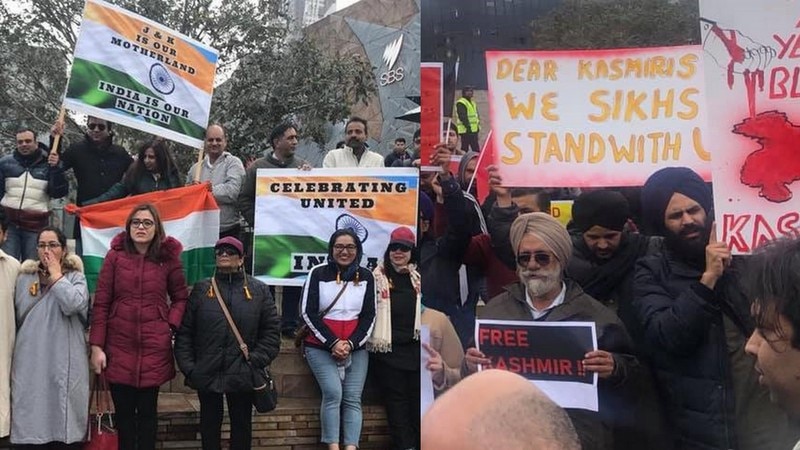Vivek Kumar
Greens Senator Larissa Waters raised the issue of human rights abuse in India in her speech in the parliament last week.
The Senator pointed out recent actions by Indian authorities against some of the members of civil society.
“Indian authorities have arrested dozens in a nationwide crackdown, with arrests based on scant evidence. Those who have been detained include a youth activist who raised awareness of police violence against Muslims, an academic who opposes the government’s dangerous anti-Muslim citizenship law, and a co-founder of a women’s collective.” Ms Waters said.
Deepak Joshi of the Humanism Project, which is a collaborative effort to counter the growing hate & divisive agendas at work in India & abroad, says Ms Waters’ speech is an indication that the world is noticing how the Indian government is abusing human rights and persecuting activists in the shadow of the virus.
“This is not the first time the issue has been raised in a federal parliament of a country. It has been raised in European and American parliaments as well,” he said, adding that there have been numerous cases of actions against critics of the Modi Government.
“The activists, students and journalists whom the Centre [read, federal] government considers against themselves are being charged under anti-terrorism laws. There have been so many incidents of mob lynching since this government came into power in 2014.”
On the other hand, the President of the Overseas Friends of BJP (OFBJP), Jay Shah, has dismissed these statements as untrue.
“There is no such incident. The Government of India’s policy deserves applause for the central government is assisting all the chief ministers of the states, including those who are ruled by some of its harsh critics,
in the battle against COVID-19.
“I don’t know where they are getting their information from, but I think they need to be educated and informed,” he said.
Senator Waters also raised the issue of Kashmir in her speech.
The Indian government in August 2019 scrapped the Indian-ruled part of Kashmir’s special status from the constitution.
It also moved a bill proposing the Indian-administered part of Kashmir be divided into two regions directly ruled by New Delhi.
“To quell dissent and to keep away news from the outside world, it continues to maintain stifling restraints, with widespread detention and drastic limits to the internet, to name a few abuses.”
However, Mr Shah claims the abrogation of the article 370 had brought positive outcomes.
“I understand that the Greens Party is outspoken on women and LGBT rights. Article 370 was biased against women as it reduced the rights of women getting married outside the state. LGBT, Dalits, Sikhs and some other minorities also did not have rights. Abrogation of this article made it possible,” said Mr Shah adding that India’s Citizenship Amendment Act (CAA) aims to help those persecuted in neighbouring countries.
He said, “India and Australia both are rule-based democracies, and they take actions according to that rules. Both provide asylum to the persecuted minorities of other countries according to their own rules and situations. India has done the same. It is offering protection to the persecuted minorities from in its neighbourhood under the Citizenship Amendment Act.”
Australia maintains that Kashmir has been that it should be resolved bilaterally by India and Pakistan.
The then Australian High Commissioner to New Delhi Harinder Sidhu had told Indian media in August last year that the Indian government’s decision to abrogate Article 370 is country’s internal matter.
“The Indian government said this is its internal matter. We respect the Indian position on that. Australia’s long-held view on Kashmir has been that it should be resolved bilaterally by India and Pakistan,” Sidhu had told ANI.
This story first appeared in ‘SBS Hindi’ in September 10, 2020 here.







